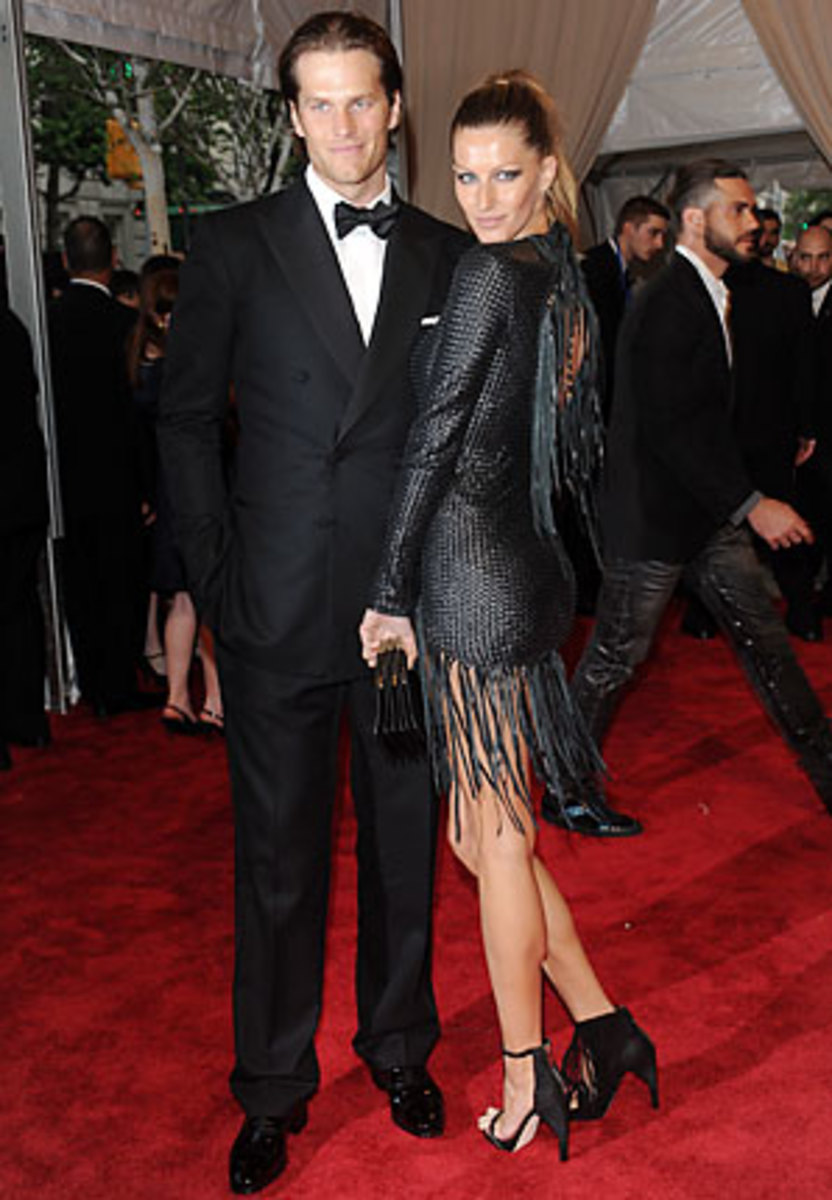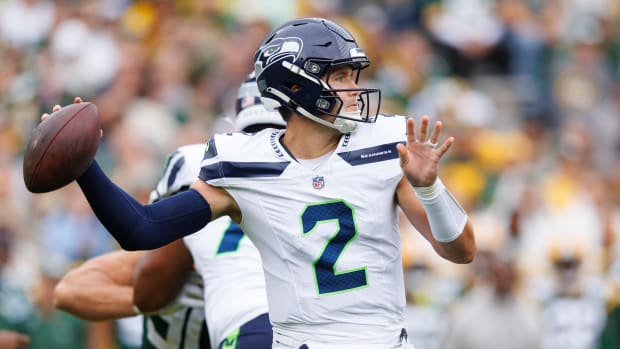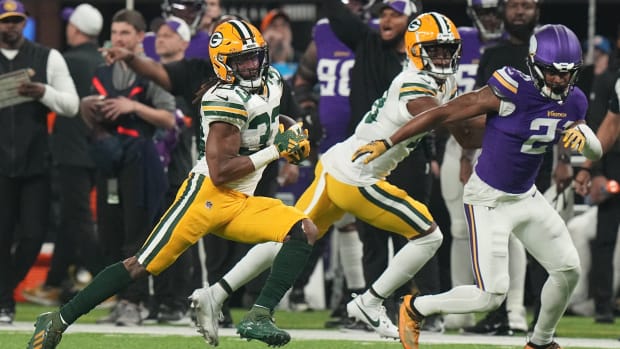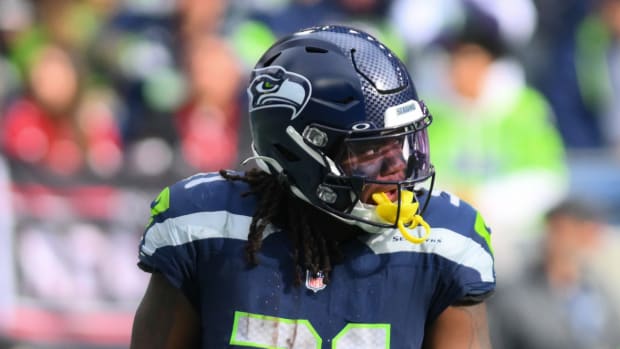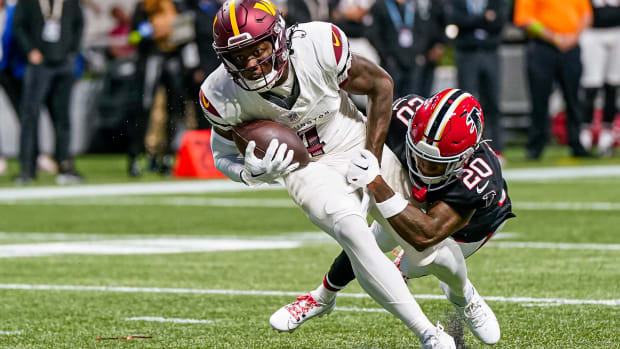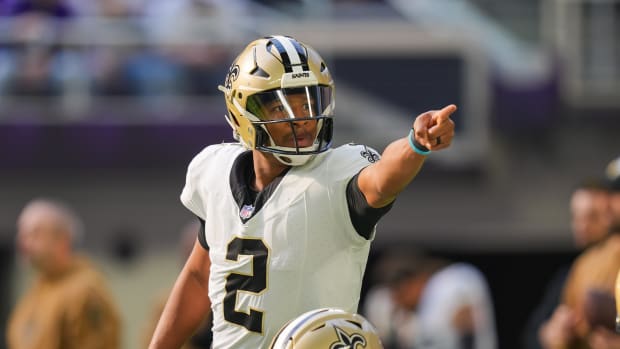Older helmets are playing starring roles in concussion incidents
I love cars. Love driving, love the mechanics and engineering that goes into them, and I love the statement you can make. I've owned everything from a Fiero to a Volvo, which is about the biggest range I can imagine in terms of safety and reliability. My Fiero was once recalled because the engine had a bad habit of catching on fire. My Volvo could have survived a zombie apocalypse.
It turns out that helmets are like this, too. There's a range of protection in them, constantly improving, though I am still convinced that a blank piece of paper and a redesign is the best possible outcome. Dustin Fink of The Concussion Blog has been doing some amazing work all season and his most recent findings are not only clear, but troubling. Over the season, he's collected information on each and every concussion that's happened in the NFL. Over the past few weeks, he's conducted a crowdsourced identification of the helmets involved. By identifying the helmet type and position of these players and comparing it to the use by players, he's found valuable information.
To me, the biggest piece of information is this: 45 percent of concussions in the NFL this season occurred in helmets that are no longer manufactured. Players using older helmets, helmets that manufacturers have said "we have better now," are putting themselves at risk. It's unclear whether players are using these helmets because of comfort, habit or even, as Fink suggests, weight. Given the choice between older technology and newer technology -- the football equivalent of a Fiero or a Volvo -- players are choosing the older. Cost really isn't a factor at the pro level, as it is at lower levels. Given that higher forces are seen at the pro level, this is all the more problematic.
It's hardly invasive or paternalistic to point out, based on results, that some players should upgrade their helmets. They drive new Escalades, right? Why not new helmets? This is something that shouldn't require a Commissioner's edict, an NFLPA memo, or even a grandfather clause. This is common sense.
The other important point here is that this is something that the NFL, NFLPA, and even the helmet manufacturers didn't put together. Dustin is an athletic trainer at an Illinois high school and his blog is filled not just with invaluable data like this, but stories of his day-to-day work with athletes, often involving concussions. His tales of dealing with parents who think their son or daughter "just got their bell rung" is as harrowing as any replay of DeSean Jackson's concussion. Be sure to check out all of Dustin's work at his blog, but now, let's check out this weekend's games:
Seeing a player go to IR at this stage of the season isn't common, but tells you how serious the injuries to Damien Woody were. Woody has dealt with ankle issues all season long, so the idea that this Achilles injury is a cascade injury is a pretty easy one. (Simply put, cascade injuries are ones caused by compensating for another injury.) Woody has missed time previously, so the Jets have experience with his backup, Rob Turner. Mark Sanchez showed no real problems with his shoulder since the injury was first known. Brad Smith has a groin strain and is probable, though Antonio Cromartie's return work was key in last week's win. Santonio Holmes practiced despite a quad bruise and should be full-go.
New England is relatively healthy. Tom Brady is a permanent probable, but saying he's "probably going to play" is like saying "Gisele is probably hot." It's a lock. The Patriots only have a couple other minor injuries, so the week off helped. Both Deion Branch and Aaron Hernandez look to be available this week, though neither is 100 percent just yet.
The question is less about how healthy these teams are coming into the game than how healthy they'll be coming out. There's no week off before these AFC North foes face the Jets-Pats winner and the physical nature of the game this week is likely to effect the results next week. The only real question mark for the Ravens is Terrell Suggs, who was not listed on the OIR but was dealing with a knee issue. On the Steelers side, all eyes will be on Troy Polamalu. He came back well from an Achilles strain and will be protected some, though the rest last week helped. His tendon is stressed and could pop on any play, so this is something that could happen on the first play, the last, or never. His availability is key to the Steeler defense's effectiveness and could be the difference in a closely matched game. The Steelers might also get DE Aaron Smith back after missing much of the season with a triceps injury. He'll get spot duty at best, but it is an upgrade.
The Seahawks come in a heavy underdog and they should be. This isn't an even matchup and I don't think that Seattle can beat a good team. (Yes, Saints fans, I went there.) They're healthy, which is part of the reason they survived to get to this point but they simply don't have the talent to content with the Bears this week. There's some question about Lofa Tatupu's availability after suffering a concussion last week, but they'll go right up to the last second to get him in there. Ben Obamanu will be ready to go at WR2. For the Bears, their only significant situation is with Charles Tillman. He wasn't at practice due to illness, but he was also seen limping a bit last time out. The time off will definitely help him, but even if he's less than full-go, the Bears have the depth to deal with it. A healthy Lance Briggs is also a big plus for the Bears, this week and going forward.
This one looks to be really, really close. NumberFire's algorithm went 4-0 against the spread last week and called the Colts-Jets game as a tie. It came pretty close to being correct, and now, this game is a called a tieas well. If it's as good a game as we saw last week, everyone should be happy in the Commissioner's office. The one significant injury for the Falcons is Roddy White, who got a week off to deal with his sore knee. Playing on turf won't help keep the swelling and pain down from what is likely a meniscus tear along the lines of what Marques Colston dealt with, but he should be able to play and play well. Look to see if the Falcons keep him off the hard cuts and closer to the sidelines. The week off will help the Falcons defense, with Curtis Lofton and John Abraham benefiting most. The Packers only issues are on defense, where they've been banged up but functional all week. Charles Woodson's matchup with Roddy White is still on, as his lingering foot issue wasn't a problem for him last week.
Maurice Jones-Drew had his knee scoped and things went well. How long will it be an issue? One source told me "he could play in the Pro Bowl if he wanted" ... Pierre Thomas looks headed for surgery on his problematic ankle. That's likely to limit him through much of the off-season and will affect his ability to work out for new teams ... Chris Ivory will have surgery to repair his foot injury. The injury-prone RB will be back for the Saints, but will likely be an overdraft ... Despite rumors, Matthew Stafford will not be having off-season shoulder surgery ... DeSean Jackson's knee injury that kept him off the field for much of his team's loss is not a long-term issue, but was said to be extremely tender and swollen after the game ... Kevin Boss had hip surgery to correct a minor issue that he dealt with this season ... I'm curious how your fantasy leagues are prepping for the upcoming stoppage. Will you still hold your drafts normally or will you wait to know that the season is going to start? How will the 18-game season the league wants affect your draft strategy? Answer here, then I'll give some of the best answers in the next Fast Forward.
































